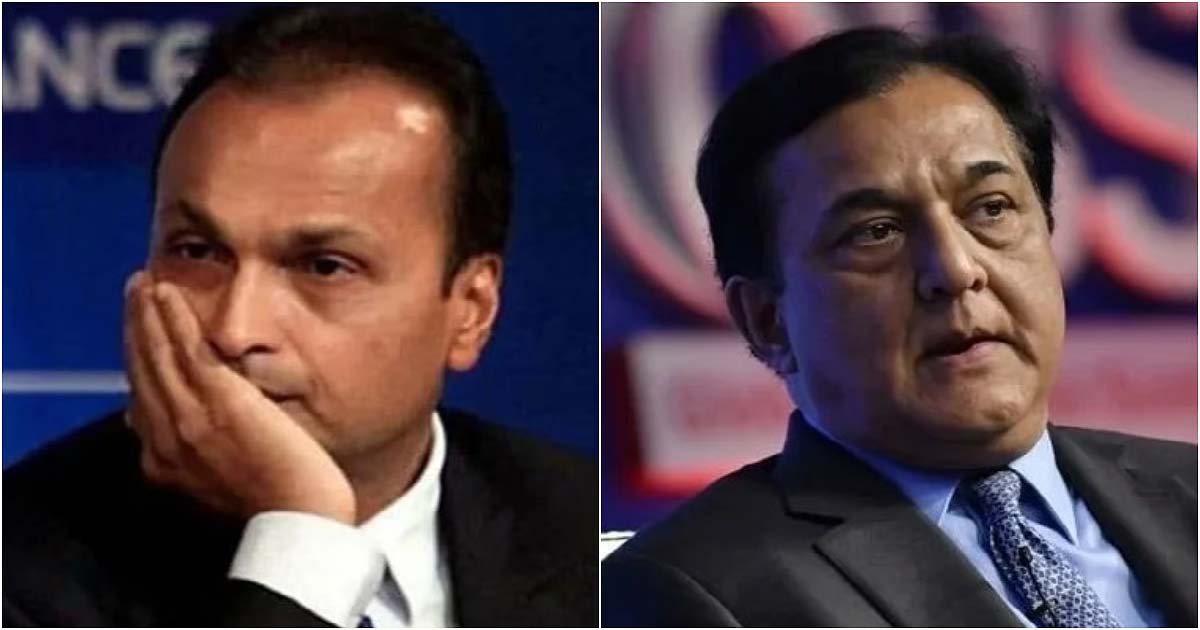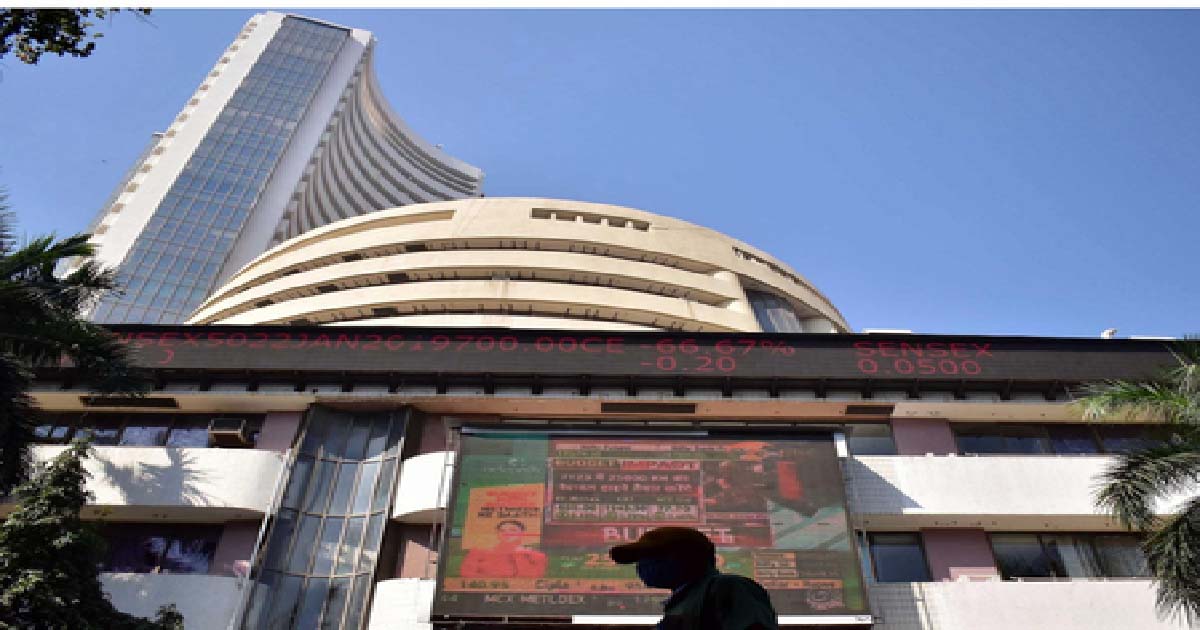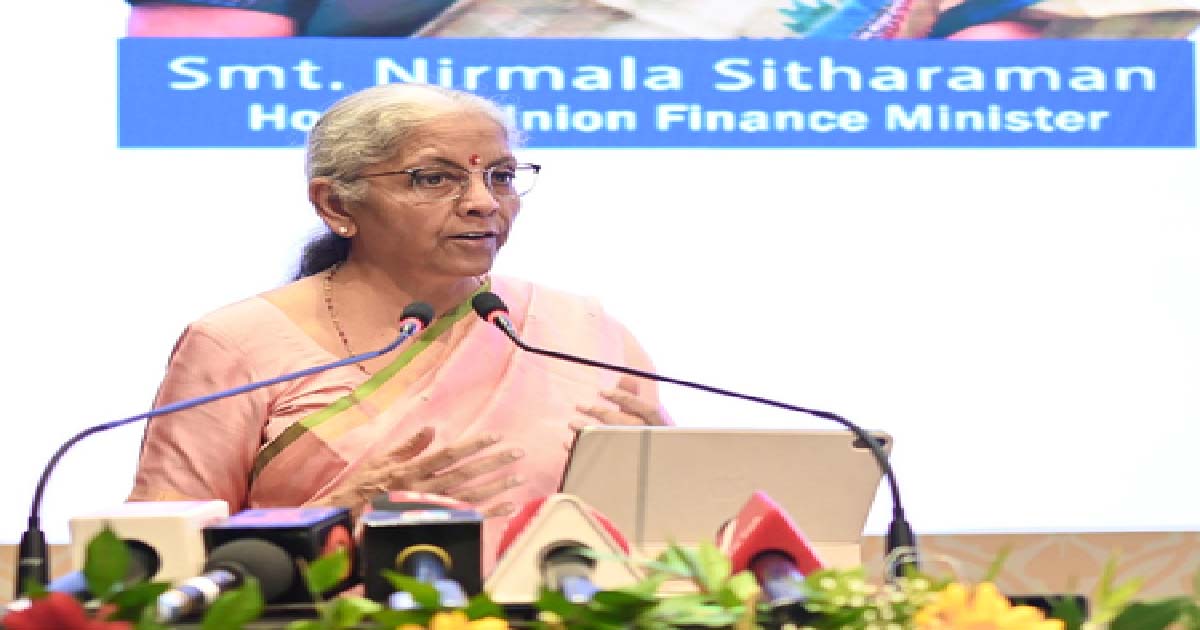Business
Sanjiv Puri’s ‘Next’ strategy drives ITC into future-ready lane with smart innovation in FMCG, Hotels, Agri

Diversified consumer goods conglomerate ITC appears to be closing in on turning its fast-moving-consumer-goods (FMCG), agriculture and hotel segments as its main growth drivers, with chairman Sanjiv Puri shepherding the ‘Next’ strategy for its next horizon of growth through bold acquisitions, and disruptive digital innovation.
This new strategy is aimed at ensuring that the ITC remains future-oriented, consumer-centric, and nimble to create enduring value for stakeholders, something that the financial results are mirroring with FMCG and agriculture contributing nearly half of its total revenues in the April-June quarter.
The FMCG segment has been driven by higher demand for hygiene products, fragrances, spices, snacks, agarbattis and dairy products, with Salvon standing out as a growth engine of sorts.
ITC acquired Savlon from Johnson & Johnson in 2015, foraying into the disinfectant and antiseptic products market. Savlon crossed Rs 1,200 crore in consumer spends in 2020-21, growing more than 13 times since acquisition, making it the largest brand in the company’s personal care products portfolio, overtaking Vivel.
ITC has launched over 120 new products over the last one year, with product innovations in hygiene, nutrition and convenience segments. These include Savlon’s foray into surface and cloth disinfectant sprays, ‘neem’ based cleaning solutions Nimwash and Nimeasy, convenience-focused products such as ITC Master Chef Frozen Snacks, and scale up nascent categories and products such like B Natural juices, Fabelle chocolates amongst others.
In four years from 2016-17 to 2020-21, the FMCG segment’s earnings before interest, taxes, depreciation and amortisation (EBITDA) margins have improved by 640 bps.
FMCG on fast lane
The company today is one of the largest incubators of world-class Indian brands. ITC FMCG business has garnered consumer spends of over Rs 22,000 crore and delighting more than 150 million households.
Scaling up and fortification of existing growth platforms consisting of megabrands is an essential cog in the wheel of ITC’s next strategy. The company has expanded its purpose-led brands like Savlon, Aashirvaad, and Sunfeast into adjacent categories with remarkable success. These brands have immense headroom to grow given the relatively lower household penetration and rising per capita income. ITC is exploring more value accretive inorganic opportunities as an additional pillar of growth.
Puri’s strategy to make ITC future-ready manifests in Life Sciences and Technology Centre (LSTC). LSTC helped ITC to launch 120 products amid the pandemic to meet emerging preferences. Towards this goal, the company has launched 9 state-of-the-art integrated consumer goods manufacturing facilities (ICML) to create structural advantages and drive enhanced competitiveness is also worth mentioning.
The new-age consumer is a digital native with extensive engagement in social and e-commerce platforms. Recognizing this, ITC is identifying emerging trends in real-time through its Marketing Command Centres called ‘Sixth Sense’ to speedily launch differentiated products as also creatively engage with consumers.
Under the ‘Next’ strategy, Puri has clearly sought to explore opportunities to craft disruptive business models anchored at the intersection of digital and sustainability. It is deploying a smart ecosystem with an integrated real-time operations platform across the organization to enable next-generation supply chains and smart manufacturing with digitally enabled factories.
The company has adopted multi-dimensional digital interventions for smart sourcing, smart logistics across businesses, and Industry 4.0 implementation in manufacturing. This is in addition to customized apps to facilitate digital ordering and trade engagement.
It has fast-tracked its journey in e-commerce, to meet the growing preference for ‘contactless shopping’. This is besides strengthening the direct-to-consumer platform, ‘ITC e-Store’ to reach consumers in newer geographies and introducing more ‘digital first’ brands to leverage the growing e-commerce space.
ITC under Puri’s stewardship is unwavering in its resolve to build a formidable FMCG business. Revenues from its FMCG business during the quarter stood at Rs 3726 crore, accounting for 25 per cent of the quarterly revenues. The agriculture segment turned in revenues of Rs 4,091 crore, accounting for 28 per cent of the company’s total quarterly revenues of Rs 14,649 crore before netting out inter-segment revenues of Rs 1,764 crore.
Big data, AI in agri
ITC’s decades-old agri business, powered by the e-choupal network, also appears to be coming of age.
Once the legal framework is in place that allows farmers to sell their produce outside their areas of cultivation, there is a clear opportunity in agri-business, similar to what ITC e-choupal in India and Pinduoduo in China have done successfully with scale.
Both are examples of using big data, technology network and artificial intelligence (AI) in farming to offer a better deal to peasants, make agriculture a rewarding vocation and bring them closer to the global markets by building digital platforms linking retailers with products consumers.
These will enable aggregation from farmers, incentivise creation of warehousing networks along highways, village storage schemes and the digitised app-based system for direct marketing by farmers, a model that ITC e-choupal has broadly demonstrated over the years.
Baareh Mahine Hariyali, an ITC e-Choupal initiative, which has combined multiple initiatives of cropping intensity (wheat, rice and summer moong), productivity enhancement and market linkages.
As reported by ITC, over 2 lakh farmers have already benefited from the interventions under the ‘Baareh MahineHariyali’ programme — over 35,000 farmers who have adopted the package of practices reported doubling of income and those who have implemented the programme partially reported increase in their incomes by 30 per cent to 75 per cent.
ITC, under Puri, is now implementing e-Choupal 4.0 at scale to bring the benefits of the digital revolution to agriculture. Envisaged as a ‘phygital’ system, the e-Choupal 4.0 is designed as a crop agnostic integrated solution framework that will synergistically aggregate technologies like remote sensing, precision farming, drone-based services, quality assaying and e-marketplace.
ITC e-Choupal 4.0 aims to strengthen agricultural entrepreneurship and agri-tech startups through agri services aggregator models, thereby empowering farmers with next generation agricultural practices. The aim of the model is to sharpen personalisation of agri services driven by data and analytics.
This may well be the right time for ITC’s integrated agribusiness enterprises with significant presence across crop development, procurement, supply chain, processing and marketing to decisively shift gears through a tech-driven matrix mounted on apps, blockchain, warehousing, AI and big data.
With the launch of Super App ‘ITC-MAARS’ that will bring the next phase of transformation in its agri-business and support the e-choupal through strength and scale under Puri.
Hotels and more
ITC’s hotel business has acquired scale and market standing over time. It is now set for a turnaround with the management decision to pursue asset right strategy while simultaneously leveraging ITC’s world-class properties.
Against this backdrop, the move to refresh ‘Welcomhotel’ is a long-awaited development as it will help the company to generate leads and pipeline for management contracts. Also, the launch of a new boutique brand christened ‘The Storii’ to offer the new-age traveller curated nature experiences will help the company make inroads into the emerging segment.
Business
CBI Chargesheet Alleges ₹2,796 Crore Yes Bank Fraud Involving Anil Ambani’s ADA Group And Rana Kapoor

Mumbai: The Central Bureau of Investigation (CBI) which is probing the transactions between Yes bank through its former Managing Director Rana Kapoor and Anil Dhirubhai Ambani (ADA) Group company, has alleged that the funds received from the bank in M/s Reliance Home Finance Limited (RHFL) and Reliance Commercial Finance Ltd (RCFL) were further diverted to several shell companies, created only to receive funds.
CBI has submitted a chargesheet before the special CBI court against Rana Kapoor and his family, Anil Ambani and other companies for causing loss to Yes bank to the tune of Rs 2796.77 crores, as the investments made in ADA group could not be recovered.
The agency has said that during 2017-2019, Yes Bank had invested Rs. 2965.00 crores and Rs 2045.00 crores through subscription of Non- Convertible Debentures (NCDs) & Commercial Papers (CPs) of M/s RHFL and M/s RCFL respectively.
The agency has in its chargesheet listed down several shell companies which further received funds from RHFL and RCFL. The list of these shell companies, as mentioned in CBI’s chargesheet include – Gamesa Investment Management Pvt Ltd (GIMPL), Species Commerce and Trade Pvt, Crest Logistics and Engineers Pvt Ltd, Gamesa Investment Management Pvt Ltd, and Mohanbir Hi-Tech Build Pvt Ltd.
The agency claimed that, “the primary purpose of these shell companies was to receive funds from RHFL and RCFL acted on instructions of Anil Ambani.”
CBI claimed that Anil Ambani was unable to directly invest the funds available at the disposal of M/s Reliance Nippon Mutual Fund in the financial companies of the ADA Group, which were under stress, due SEBI Mutual Fund Regulations. Hence in a criminal conspiracy, Yes Bank Ltd subscribed to NCDs of M/s RHFL, M/s RCFL and M/s Reliance Capital Limited (RCL).
In return, the agency alleged that the funds available at the disposal of M/s Reliance Nippon Mutual Fund, invested in YBL AT-1 bonds and AMC also invested in Rana Kapoor’s family firm.
Thus, funds available with Reliance Nippon Mutual Funds were routed to the group companies of ADA through Yes Bank, CBI claimed, adding that the funds were further diverted to other shell companies.
The agency has alleged that it all started with the meeting held between Rana Kapoor and Anil Ambani on October 6, 2017, just a month before the Reliance Nippon Life Asset Management Limited (AMC) was listed with BSE and NSE on November 6, 2017.
The agency pointed out that “the abnormal decision of YBL to make huge investment in the NCDs of the financial companies of ADA Group and the abnormal decision of the AMC to make huge investment in the YBL AT-1 Bonds were taken in this meeting. Both the investment decisions were taken in a hasty manner and without holding any discussion between the officers of YBL and the officers of the AMC.”
It is claimed that on October 6, 2017 it was Friday, hence the following working day that is on October 9, 2017, the process began. The agency claimed that on October 9, 2017, Kapoor instructed senior executives of IFIB for initiating the proposal for investing in NCDs worth Rs 2900 crores in three ADA group companies – RHFL, RCFL and RCL. The agency claimed that the investment transaction was completed and funds were transferred on October 13, 2017.
On the other hand, AMC, allegedly under the influence of Anil Ambani, prepared a formal note for increasing the long-term debt investment limit in M/s Morgan Credits Private Limited (MCPL), a firm owned by Radha and Roshini, from Rs 550 crores to Rs 625 crores. Accordingly in ten days AMC invested Rs 50 crores in MCPL.
Meanwhile, on October 9, 2017, Yes Bank initiated the process for issuance of fresh AT-1 bond under the instructions of Rana Kapoor, even when the DCM team of the bank had raised apprehension for arranging subscribers for making investment in fresh YBL AT 1 bonds in such a span, wherein they were still busy in offloading earlier bonds in secondary market, CBI alleged.
However, CBI claimed that Rana Kapoor had informed them that Reliance Nippon Mutual fund would make an investment of Rs 2000 crores through private placement and Rs 1000 crores secondary market in YBL AT 1 bond.
The agency claimed that AMC had enhanced the sub limit for YBL AT – 1 bond by about 600% in a short span of time, as compared to the sub-limit of other banks which was at max enhanced to 70%.
Business
Indian stock market opens flat amid mixed global cues

New Delhi, Oct 31: The domestic benchmark indices started the session flat amid mixed global cues, as US President Donald Trump and his Chinese counterpart, Xi Jinping, agreed to ease the trade conflict for a year only.
The Sensex started the session at 84,379.79, down 25 points against the last session’s closing of 84,404.46. Nifty opened 14 points lower at 25,863.80. However, both the indices turned green in a while amid buying in automobile and banking heavyweights.
“The Trump-Xi summit delivered only a one-year truce in the US-China trade war, not a breakthrough trade deal. To that extent, market participants were disappointed at the outcome, even though there is relief in the declining trade tensions and possible movement towards further progress,” analysts said.
Among the Sensex stocks, NTPC, Tata Steel, Kotak Bank, Sun Pharma, and Bharti Airtel were trading lower in early trade, while Maruti Suzuki, TCS, BEL, Bajaj Finance, Titan, Tata Motors PV, L&T, and ITC were trading in positive territory.
Broader indices witnessed buying activities in the morning trade as Nifty Midcap 100 and Nifty Smallcap 100 were up around 0.4 per cent. Nifty 100 was also trading in green.
“The rally in the Indian market has been running out of steam as it approaches the record high of 26277 set in September 2024. Renewed selling by FIIs is likely to be a drag on the market in the near-term,” market watchers added.
Sectoral indices were trading high. Nifty Auto, Nifty IT, Bank Nifty, and Nifty FMCG were trading up to 0.6 per cent higher amid decent buying interest. Nifty Fin Services was also trading up.
“Given the heightened volatility and mixed global cues, traders are advised to maintain a cautious ‘buy-on-dips’ approach, particularly when using leverage. Booking partial profits during rallies and keeping tight trailing stop losses will be key for effective risk management. Fresh long positions should be considered only if the Nifty sustains above the 26,100 mark,” the analysts added.
Business
FM Sitharaman embarks on Bhutan visit to deepen economic, developmental cooperation

New Delhi, Oct 30: Union Finance Minister Nirmala Sitharaman on Thursday embarked on an official visit to Bhutan to further deepen economic and developmental cooperation between the neighbouring countries.
The visit of the Indian delegation from the Department of Economic Affairs, Ministry of Finance, is slated from October 30-November 2, according to an official statement.
The visit underscores India’s enduring partnership with Bhutan, rooted in mutual respect, trust, and shared commitment to progress and prosperity in the region, it added.
Finance Minister is scheduled to call on the King of Bhutan, Jigme Khesar Namgyel Wangchuck, and Prime Minister Dasho Tshering Tobgay.
She will also hold a bilateral meeting with the Bhutan Finance Minister Lekey Dorji to discuss avenues for further strengthening India-Bhutan economic and financial cooperation.
FM Sitharaman will begin her official tour with a visit to the historic Sangchen Choekhor Monastery, established in 1765 and home to over 100 monks engaged in advanced Buddhist studies, according to the statement.
She will visit and observe several key projects being implemented with support of the Government of India. These include the Kurichhu Hydropower Plant Dam and Powerhouse, the Gyalsung Academy, the Sangchen Choekhor Monastery and Punakha Dzong.
Sitharaman will attend presentations on key developmental initiatives, including the energy sector of Bhutan by Druk Green Power Corporation Limited (DGPC); Bhutan’s 21st Century Economic Roadmap; Banking/Financial sector in Bhutan by Druk PNB and the Bank of Bhutan; and The Gelephu Mindfulness City project
The Finance Minister will also visit the Cottage and Small Industries (CSI) Market, where she will witness a transaction using India’s Unified Payments Interface (UPI), reflecting the growing digital and financial connectivity between the two nations.
According to the official statement, Sitharaman will visit the Punakha Dzong — Bhutan’s second-oldest and second-largest dzong.
On the way to the Punakha Dzong, she will also interact with Bhutanese farmers to understand their agricultural practices, challenges, and opportunities.
-

 Crime3 years ago
Crime3 years agoClass 10 student jumps to death in Jaipur
-

 Maharashtra1 year ago
Maharashtra1 year agoMumbai Local Train Update: Central Railway’s New Timetable Comes Into Effect; Check Full List Of Revised Timings & Stations
-

 Maharashtra1 year ago
Maharashtra1 year agoMumbai To Go Toll-Free Tonight! Maharashtra Govt Announces Complete Toll Waiver For Light Motor Vehicles At All 5 Entry Points Of City
-

 Maharashtra1 year ago
Maharashtra1 year agoFalse photo of Imtiaz Jaleel’s rally, exposing the fooling conspiracy
-

 National News1 year ago
National News1 year agoMinistry of Railways rolls out Special Drive 4.0 with focus on digitisation, cleanliness, inclusiveness and grievance redressal
-

 Maharashtra12 months ago
Maharashtra12 months agoMaharashtra Elections 2024: Mumbai Metro & BEST Services Extended Till Midnight On Voting Day
-

 National News1 year ago
National News1 year agoJ&K: 4 Jawans Killed, 28 Injured After Bus Carrying BSF Personnel For Poll Duty Falls Into Gorge In Budgam; Terrifying Visuals Surface
-

 Crime1 year ago
Crime1 year agoBaba Siddique Murder: Mumbai Police Unable To Get Lawrence Bishnoi Custody Due To Home Ministry Order, Says Report












